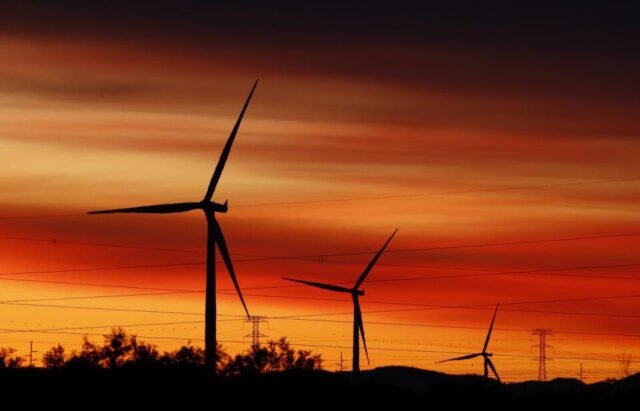South Africa’s transition to net zero by 2050 could cost almost R6 trillion, according to a report by the National Business Initiative, in collaboration with Business Unity South Africa and the Boston Consulting Group.
SOUTH Africa’s transition to net zero by 2050 could cost almost R6 trillion, according to a report by the National Business Initiative (NBI), in collaboration with Business Unity South Africa (Busa) and the Boston Consulting Group (BCG).
According to the Financing South Africa’s Just Transition report, the power sector offers the greatest opportunity for affordable decarbonisation.
The report focused on what sources of finance are available to fund the transition, and how climate finance can be unlocked as a critical enabler of South Africa’s transition, especially for high-priority investment areas.
The report found that R1trn is required by 2030, and R5.9trn is needed by 2050 to fund the net-zero transition, but many of these investments, it said, were commercially viable and would reduce existing expenditure on fossil fuel procurement.
“Approximately R5.9trn by 2050 requires that South Africa make investments of R100 billion annually in the 2020s, growing to R300bn annually in the 2040s. Assuming a historical GDP growth of 2.4%, these investments are equal to 1.5% of GDP in the 2020s and 3% of GDP by 2050,” the report said.
At the Glasgow Climate Pact at the UN Climate Change Conference of the Parties (COP26) in November 2021, countries were requested to revisit and strengthen their 2030 emissions-reduction targets known as nationally determined contributions or NDCs by the end of 2022 to better align with the Paris Agreement’s goal of limiting global temperature rise to 1.5°C.
The report found that in the long term, as the transition drives a more affordable and reliable electricity supply, and a new green hydrogen value chain is established, target GDP growth should exceed the historical average of 2.4% per annum. In later years, post-2040, this could further reduce the total investment required as a percentage of GDP.
According to the report, R1trn is required by 2030 to fund the net-zero transition, excluding social costs and prior to taking into consideration recent price escalations in the renewable energy sector.
The reports said of this R1trn, 70% is required for the power sector alone and are commercially viable investments. These investments also include grid investments that must be made to strengthen and modernise the national grid infrastructure.
The report found that South Africa’s grid infrastructure currently has limited capacity in regions where renewable energy potential is the highest, such as the Northern Cape and Eastern Cape.
“To achieve the scale and pace of the renewable energy rollout required, grid infrastructure is a critical unlock,” it said.
According to the report, the investments in South Africa’s infrastructure will structurally change the economic system, including funding 190 gigawatt of renewable energy (RE) capacity by 2050, retiring 70% of coal-generating capacity by 2040, satisfying demand of 9 Mt per annum of green hydrogen, and electrifying transport and other sectors.
“The transition also rests on behavioural changes that are harder to quantify, such as a drastic reduction in red meat consumption by 2030, as some studies suggest, and a large-scale shift toward electric vehicles (EVs) and public transport,” it said.
– BUSINESS REPORT








